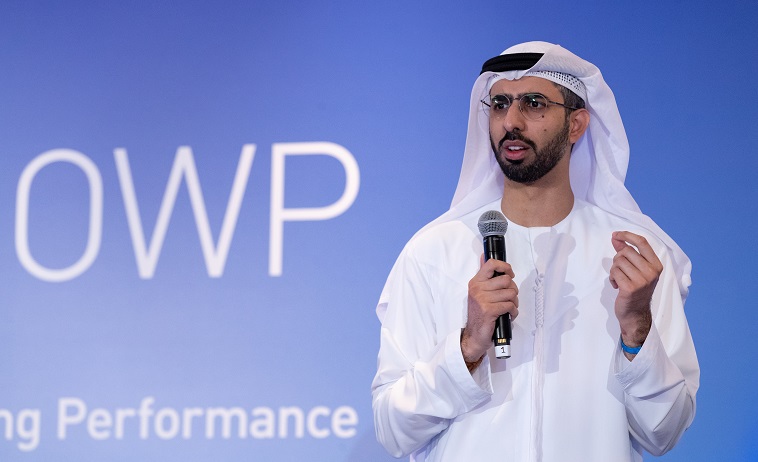The United Arab Emirates has been an early and advanced operator of Artificial Intelligence (AI) because it has been willing to learn from the mistakes of its past, the country’s Minister of State for AI said during a keynote speech at Orchestrating Winning Performance in Dubai.
From the year 813 to the year 1455, he explained, the Middle East was the most advanced and cutting-edge region of the world.
In 1455 the Middle East overlooked an invention that was embraced by every region in the world – the Gutenberg printing press.
Regional fears over fake copies of religious scripts led to the banning of the invention, which led to incredible technological advancement in the rest of the world.
“Today we are still paying the price,” said H.E. Omar Sultan Al Olama, who was made the world’s first minister for AI in 2017.
As the world stands on the brink of another technological innovation that is already making a huge impact on the personal and professional lives of people all around the world – AI – the UAE will not make the same mistake again, the minister said.
In fact, the UAE is determined not only to be an early adopter of the technology – but a world leader by 2031, said Al Olama.
“AI will change the world”
Why is the development and adoption of AI such a priority for the country?
“Everyone is talking about AI,” the minister said. “Whoever is going to lead in the Artificial Intelligence race will lead the future. This technology will change the world.
“Today, none of us can live without AI systems. They are the first thing you use in the morning and the last thing you use at the end of the day. My question, therefore, is why is no-one taking it seriously? It is because no one understands it.”
There are several factors in the UAE’s favour that will lead to a successful implementation of AI in the country, the minister added.
“The first is tolerance,” he said. “Two-hundred nationalities live and thrive in the UAE and co-exist peacefully.”
Another is the forward-thinking and optimistic nature of leadership in the country, despite being located in one of the most turbulent regions in the world, he added.
“If these two things come together and we can use AI positively, then we can rule,” said Al Olama, before adding that AI depends on the ‘three Vs’ – volumes of data, variety of data and velocity (how quickly this data can be used).
Preparing for AI
It is imperative that nations ensure the technology is used responsibly, said Al Olama. Taking climate change as an example, the minister explained how irresponsible urban development has exacerbated the problem, and this is one of challenges that AI can help to solve.
Ultimately, the whole world will need to prepare for the advance of AI technology, minister Al Olama said. Those who fail to prepare will undoubtedly fail, he said, while those who consider just the financial gains will also miss out on the potential benefits.
“If we just look at the economic gain we will fail,” he said. “The numbers are appealing, and they seduce you into thinking that AI is a positive technology that can only do good things. But there are challenges that are going to come along the way.
“If you don’t think of the social implications of AI, and just deploy it for economic gain, hundreds-of-thousands of people are going to lose their jobs … And that is going to lead to a future that none of us want.”
Another huge challenge will be to ensure that policymakers around the world are armed with knowledge of AI before they design the rules that will govern the technology, minister Al Olama said. In response to this, the UAE has launched an initiative to train 100 government officials in AI technology.
The UAE is also introducing AI into schools and training teachers on the new curriculum so that children learn about the technology from an early age, and are prepared for the onset of a technology that could, if used wisely, bring huge benefits to people all over the world.
Watch the full keynote speech of H.E. Omar Sultan Al Olama here.


